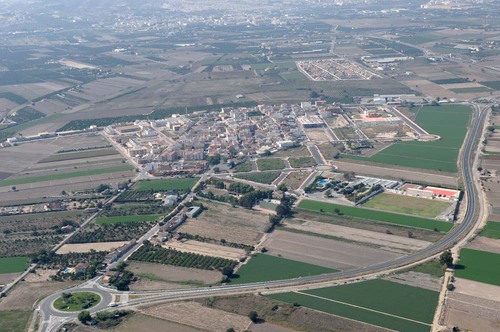
Year after year, journalists drop by the town of San Fulgencio in Alicante province to check whether the trend persists. And the answer is, yes, it does – in fact, it’s even growing. The latest head count by the National Statistics Institute (INE) shows that 77.7 percent of residents registered in the municipality are foreign-born. That means that nearly four out of every five inhabitants are not Spanish.
San Fulgencio has been the defending champion in these particular statistics for over 10 years, and still lacks a real rival. The town could well serve as a laboratory for analyzing the extent and effects of European integration. Coexistence is peaceful and relations good. But integration is an entirely different story.
The profiles are well-defined: 6,364 out of the 9,862 foreign residents (64.5 percent of the total) are British, followed by 1,468 Germans and small delegations from other countries, mostly also Europeans.
Given that there are only 3,000 resident Spaniards, one might be tempted to think that San Fulgencio is ruled by the British. But that is not the case. In reality, the town is divided in two, both geographically and sociologically. The Spaniards live below, in the former old part of town, and the foreigners live higher up, in an area named La Marina, which houses a massive residential estate filled with stand-alone homes.
Language, one might say, is the main barrier to integration here. A notary who wished to remain anonymous said that several British citizens who wanted to apply for Spanish citizenship gave up when they found out that speaking Spanish was a requirement.
It is only during the local fiestas in January that the uptowners and the downtowners come together. So says the mayor, Carlos Ramírez, 43, of the Popular Party (PP). Ramírez used to work at El Corte Inglés, Spain’s largest department store chain, and now works full-time as a local leader.
“There is no real integration,” he says. “This used to be a small village of farmers with one local policeman who was blind in one eye, and suddenly a giant company descended on the village and began building thousands of homes on some land located three kilometers from the center, and connected to it with a badly paved road. This physical barrier, together with the language issue, did the rest. They lead their own separate lives, and have over 200 establishments of their own.”
Opposition leader Trinidad Martínez, a former Socialist mayor herself, feels the same way. “We are still separated. They have all the services, too. If there are two hairdressers downtown, there are seven uptown. When it comes to running things, they feel it’s better for Spaniards to run the municipality. They don’t participate a lot, even though their influence could be decisive. But experiences have not been good.”
In fact, all the calm turns into a storm where local politics are concerned. New, suspicious-sounding groups keep popping up to seek votes among the foreign population and later use that representation to help either the PP or the Socialists take control.
In 2008, a British man named Mark Lewis who was councilor for animal affairs ended up becoming mayor despite the fact that he didn’t speak a word of Spanish, after the police arrested nearly the entire local government – including then-Socialist mayor Trinidad Martínez – over a recording that showed a group of businessmen bribing the town-planning councilor to ensure his support for their project for a huge residential and golf estate.
Right now, the PP is in government thanks to support from Scotsman Jeffrey Wiszniewski, the sole councilor and leader of the PIPN (Independent Party for Nationalities). Wiszniewski is accused of having several advisors at his service courtesy of the local coffers.
At another time, San Fulgencio had a deputy mayor who was also the councilor for treasury, trade, tourism, protocol and cabinet affairs, all at the same time. This man was also arrested for allegedly accepting a bribe, although the claim was proven false. “There’s been a lot of dirty dealing around here,” concludes Trinidad Martínez.
Meanwhile, San Fulgencio keeps growing in its own way. While there are always more deaths than births, the migratory balance is positive: new retirees keep coming every year. And to the great satisfaction of lawyers and notaries, foreign residents have learned their lesson and now conduct all their legal paperwork in two languages, including their wills.
Demographics suggest that San Fulgencio has survived the crisis. Those who predicted a massive return of foreigners back to their native countries were wrong. Unlike other foreigner-oriented residential estates on the Alicante coast that have turned into ghost towns, this place has resisted the onslaught of the real estate bubble and even the devaluation of the pound. San Fulgencio lives on.
[source : el pais]